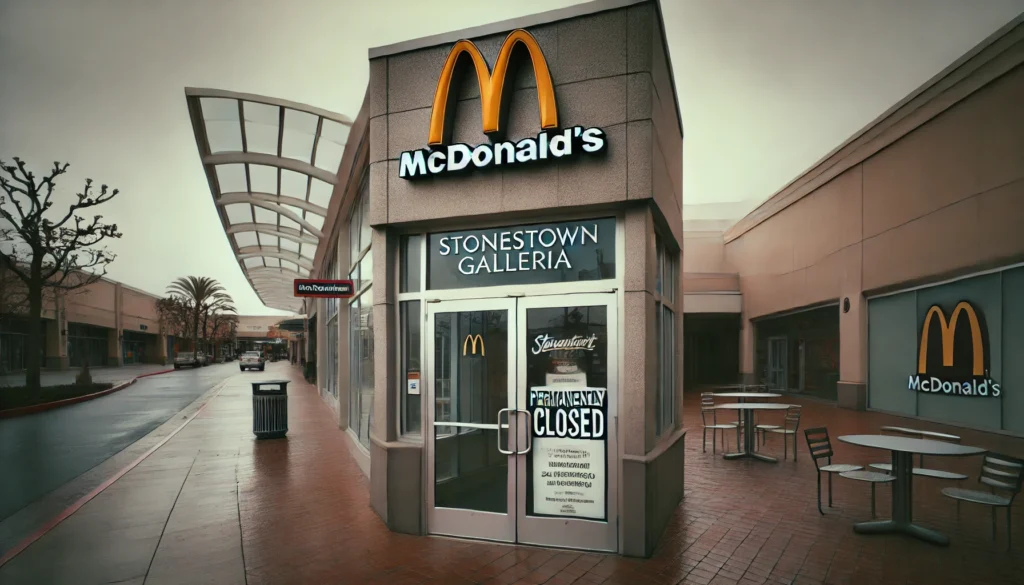San Francisco Loses Decades-Old McDonald’s as $20 Minimum Wage Takes Effect
In a move that has sent ripples through the local community and sparked discussions about the impact of recent labor laws, a longstanding McDonald’s restaurant in San Francisco has permanently closed its doors. The closure, which occurred over the weekend, marks the end of more than three decades of operation for the popular fast-food outlet located in the Stonestown Galleria shopping mall.
Franchisee Scott Rodrick, who purchased the location in 2014, described the decision to shut down as “long and difficult.” In a statement to the San Francisco Chronicle, Rodrick outlined two primary factors that contributed to the closure.
The first issue centered around unsuccessful negotiations with the landlord regarding rent terms. Rodrick noted that the property taxes and tenant fees associated with the shopping mall location were particularly high, creating a challenging financial environment for the franchise.
However, it was Rodrick’s second point that has drawn significant attention. He cited California’s recently implemented $20 minimum wage for fast-food workers as a major contributing factor to the closure. The new wage law, signed by Democratic Governor Gavin Newsom last year, went into effect on April 1, 2024.
Rodrick didn’t mince words when describing the impact of the wage increase on his business. “It has never been as challenging in my 30 years of owning a franchise in California as it is today,” he stated. He further characterized the new minimum wage as “an extraordinary headwind against operating a successful, family-owned business.”
The closure of this McDonald’s location is not an isolated incident in the wake of California’s new minimum wage law. Earlier this month, Rubio’s Coastal Grill announced the closure of 48 locations across the state, citing rising business costs. The chain subsequently filed for bankruptcy, highlighting the broader implications of increased operational expenses in the fast-food industry.
Despite the closure, Rodrick has made efforts to minimize the impact on his employees. In an interview with local ABC affiliate KGO-TV, he confirmed that all staff members from the closed location were offered positions at nearby McDonald’s restaurants, with most choosing to remain with the company.
The sudden closure came as a surprise to many regular customers. A letter posted at the entrance of the restaurant on Sunday informed patrons of the permanent shutdown. In the message, Rodrick expressed gratitude to the community, writing, “It has been a pleasure for my entire team and I to serve the 19th Avenue and Ingleside neighborhoods for more than 30 years. We are thankful to have been a part of your daily meal routine, either for an Egg McMuffin in the morning or a Happy Meal with the kids after an afternoon of shopping at Stonestown.”
The closure of this long-established McDonald’s has ignited a broader debate about the balance between fair wages and business sustainability. Proponents of the minimum wage increase argue that it provides essential financial support to workers in an industry known for low pay. Critics, however, point to closures like this as evidence that such measures can lead to job losses and reduced business opportunities, particularly for small and family-owned franchises.
As San Francisco and the rest of California continue to navigate the implications of the new minimum wage law, the closure of this McDonald’s serves as a tangible example of the challenges facing the fast-food industry. It raises important questions about the future of similar establishments in high-cost areas and the potential long-term effects on local economies and job markets.
While the golden arches may have dimmed at this particular location, the broader conversation about fair wages, business viability, and the changing landscape of the fast-food industry in California is only beginning to heat up.



